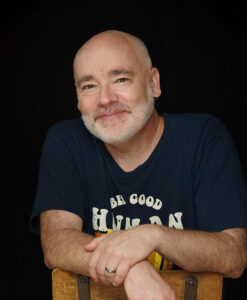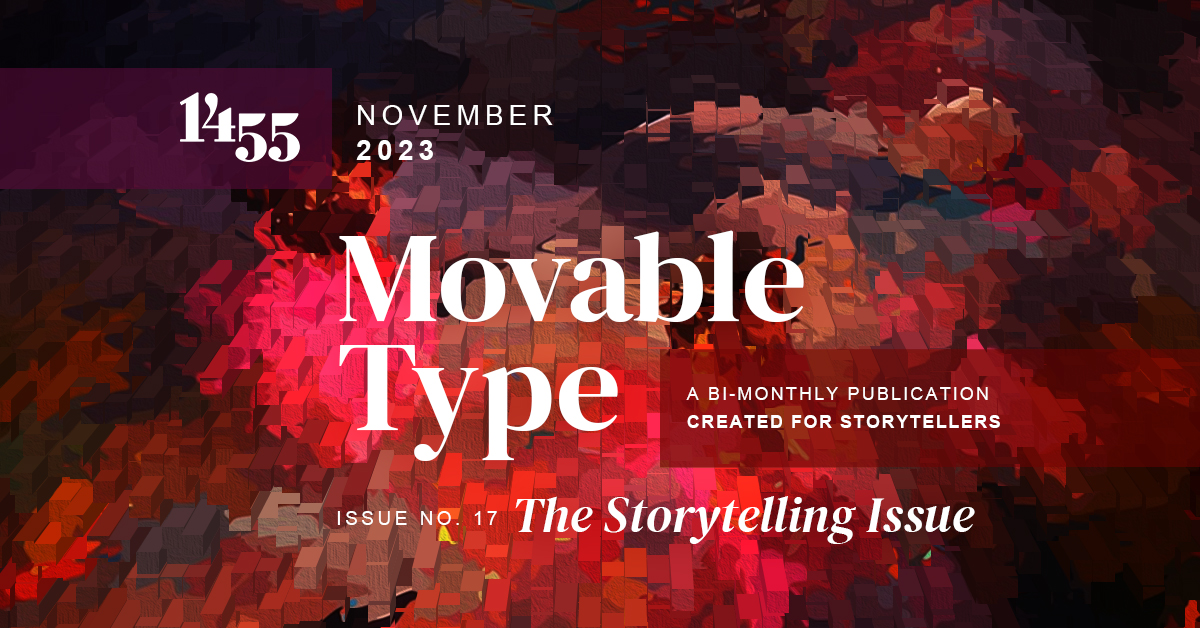
Cover Background Art by Morgan Ryan | morganryancreative.com
DIRECTOR’S CUT
The STORYTELLING Issue
Let me tell you some stories.
In 1851, Melville published what he knew to be his masterpiece, Moby Dick, and watched as the world yawned. Not only did his novel fail to connect (it was considered a failure, both critically and commercially), it effectively ended his writing career, and he spent the next several decades nursing his wounds in semi-obscurity. A few decades after that, his work was “rediscovered” and, in short order, it came to be considered the great American novel, and every high school student’s white whale. (A lot more about Melville and his great American novel here.)
This is a tale familiar not only to English majors, but anyone who has followed the often-uneasy intersection of creativity and culture through American history.
What’s particularly infuriating is not that the masses didn’t instantly recognize the book as a masterpiece, or even that his own publishers failed to appreciate or promote it properly, but that they were looking for a less ambitious, less literary, more commercial work. Sound familiar?
This ugly, undeniable reality is never far from any writer’s mind, but reading, once more, about poor Melville, hit differently, and harder, as I’d just read a magnificent feature on the, well, magnificent Martin Scorsese in GQ. The entire piece can hardly be more enthusiastically recommended, but there were some insights that, even for an experienced and cynical I mean realistic arts advocate, gave me pause. A few snippets from the piece are worth quoting in full.
One fascinating contradiction of Scorsese’s career is despite his success—critically and, more recently, commercially—he has never been a natural fit in Hollywood’s traditional studio system, and spent many of his younger decades in search of money and support to make what he wanted to make. Even his many successes, in those years, could feel like failures. “They told me one time, I think it was about Casino, where they said, ‘We made 60 million’—this is a paraphrase quote: ‘We made $60 million on that film or something like that in profit. We’re interested in making $360.’
and this (and it’s worth underlining and reiterating, this is sentiment from one of the most venerated, successful, and critically celebrated artists in American history):
“Well, the industry is over,” Scorsese said. “In other words, the industry that I was part of, we’re talking almost, what, 50 years ago? It’s like saying to somebody in 1970 who made silent films, what do you think’s happened?” But, of course, Scorsese has theories. Studios, he said, are not “interested any longer in supporting individual voices that express their personal feelings or their personal thoughts and personal ideas and feelings on a big budget. And what’s happened now is that they’ve pigeonholed it to what they call indies.”
That’s an epitaph that applies equally to films, books, and music. Streaming has found new audiences, and has made the wrong people much richer. Books are, arguably, selling more than ever, but the ostensible gatekeepers of culture aren’t above yet another project for some reality TV star. The music industry seems increasingly like something that was a 20th Century anomaly, where –without the necessity of patrons or sponsors– a songwriter could make a reasonable living simply from creating and performing.
The “tough week to contemplate the past/present/future state of the arts” became a triptych upon reading this most timely, enlightening, and depressing piece by Kate Dwyer in Esquire, entitled “Has It Ever Been Harder to Make a Living As An Author?” A handful of passages stood out (but anyone who doesn’t know, or thinks they know, how grim the prospects of combining writing and revenue, should absorb the essay in its entirety):
A few years ago, a literary agent told me that “writing books is not a career,” which didn’t quite compute in the moment. Of course writing books is a career! I thought. What this agent meant was: writing books is not the kind of career that’s also a job. Without any other revenue streams, it’s highly unlikely that someone could make ends meet or support a family by writing novels. Most novelists have day jobs, and the majority of those who don’t are either independently wealthy or juggling a handful of projects at once, often in different mediums like film, journalism, and audio. These days, it seems the only way for a full-time novelist to ensure financial stability and a comfortable life is to write a Big Book—a reality that’s almost entirely outside their control.
So…where does this leave us, in late 2023?
The reality, as these three interconnected threads remind us, is that it’s always been a difficult and uncertain road, and artists getting paid is a dilemma that no app or hack (or highly-paid PR consultant) will easily resolve. Still, there’s considerable real estate to navigate in between getting the creative work done (this used to be a career in itself) and resigning to the fickle and unfair market forces.
Good news: there are heroes amongst us who can offer invaluable (and affordable!) guidance as you try to figure out ways forward. I happily seize every opportunity to praise my friend Jane Friedman, and I not only thank her for writing The Business of Being a Writer (for what it taught me, and for being the go-to resource whenever an aspiring writer asks me for advice). Jane has been dropping knowledge and serving as every writer’s MVP for years, and it’s with both pleasure and disbelief that I acknowledge this conversation, which you can see below, was recorded almost a decade ago! (You can see us talking about all kinds of literary things via the 14:55 Interview, here.)
Another friend & resource for writers is Courtney Maum who, in addition to being a fantastic author and literary citizen, happened to write my other go-to recommendation, Before and After the Book Deal. We had a chance to talk shop during the 2021 Virginia Festival of the Book. (Here’s Courtney and me, talking about her extraordinary memoir The Year of the Horses.)
And yet another friend, the one and only Jenna Blum (who, in addition to being a NYT best-selling author and co-founder of A Mighty Blaze, is also a heroine for the lit world). From this year’s State of the Art issue, we talked about WRITERS GETTING PAID. (She was also the Keynote Speaker for last year’s 1455 StoryFest; check out our conversation here.)
It’s during this environment that 1455 celebrated our fifth annual StoryFest and second StoryFestLive!, the same world 1455 continues to provide year-round, inclusive, free content. Why? Because these voices are important, because stories matter, and art has a way of connecting communities and inspiring solidarity in ways that politics and commercial entertainment not only can’t do, but in many ways are designed not to do. I’m particularly proud to introduce a partnership with Untold Narratives, a social enterprise that works with writers marginalized by conflict of community. Based in the UK, they have been working with Afghan women writers since 2019, and we’re honored to showcase four of these writers. We share these pieces, and highlights from this year’s events, with acknowledgment that there’s always more work to do, more creativity to feature, and in the defiant affirmation of story.
Featured Writers
Clifford Brooks
Stephen Kiernan
UNTOLD NARRATIVES SPOTLIGHT
Parand
Marie Bamyani
Fatima Saadat
Farangis Elyassi
Storyfest Spotlight
Lou Bayard
VA Poet Laureates
Black Women Poets
Kelley Crowley
Mackenzie Rose
Sean Murphy
Shawn Dubravac
Deb Shutika
Sean Murphy
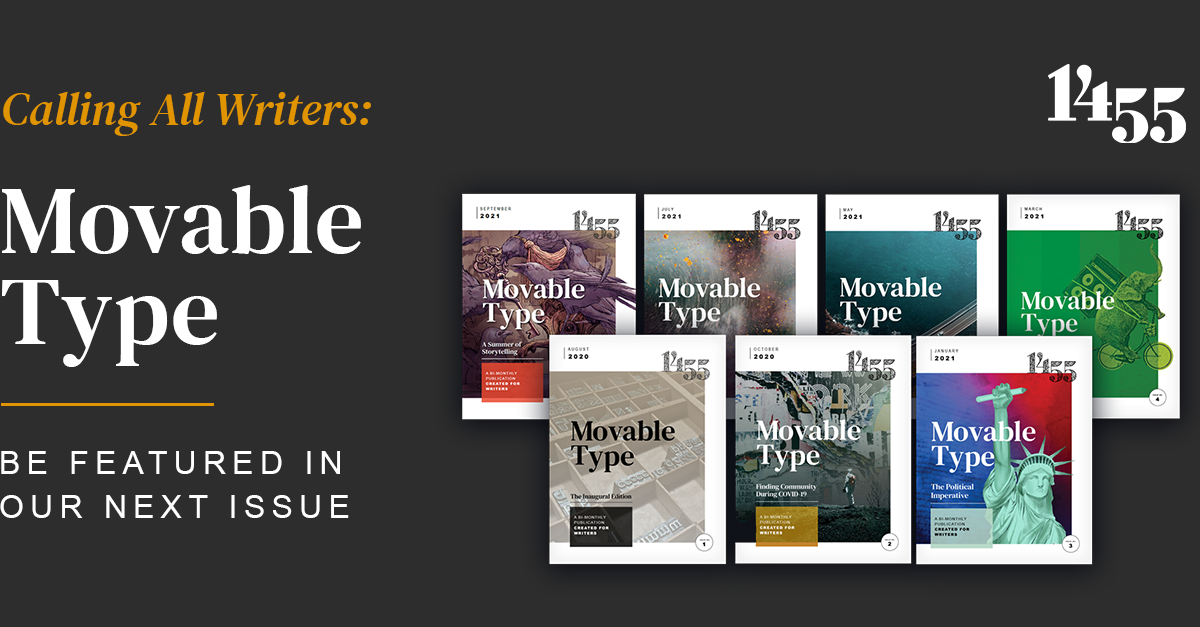
CALL FOR SUBMISSIONS
1455 welcomes submissions for the next issues of Movable Type. We invite you to submiy 1-3 poems, flash fiction (up to 1K words), personal essay / memoir (up to 2K words), artwork, musical performances on video, recorded discussions, or other storytelling mediums.
EXPLORE MORE OF 1455
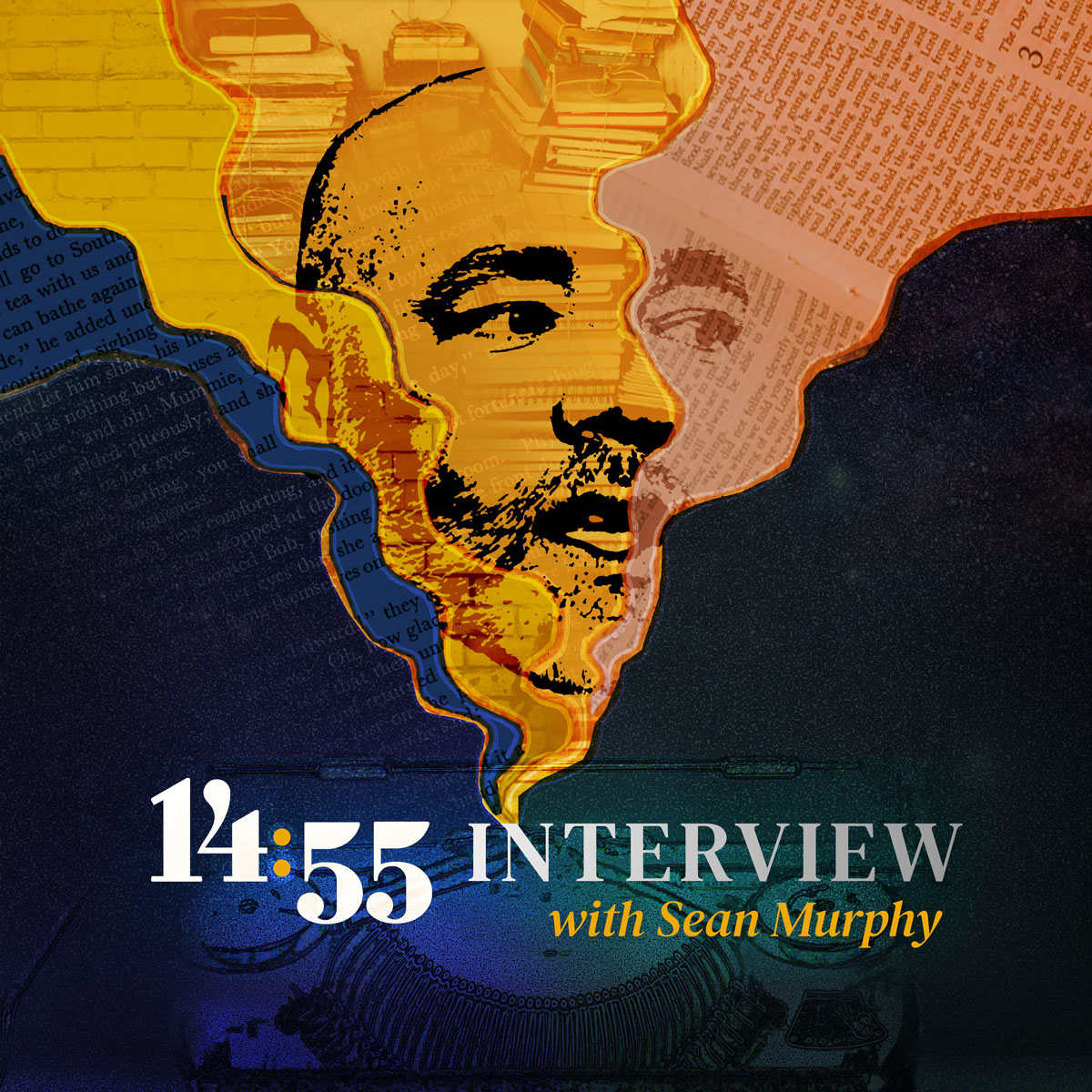
Get a glimpse into what makes your favorite creative types tick—from the writers who inspired them, to the weird habits that accompany the practice of writing, their favorite places in the world, and more. Check out this insightful series on our YouTube channel.

1455’s Moveable Feast is a new initiative bringing together directors of four distinct writing workshops based in different parts of the world who will offer writers a resource to find their community. Moveable Feast provides sponsored venues that curate readings, author talks, live interviews with writers, and other artistic events. Read more about Moveable Feast here.
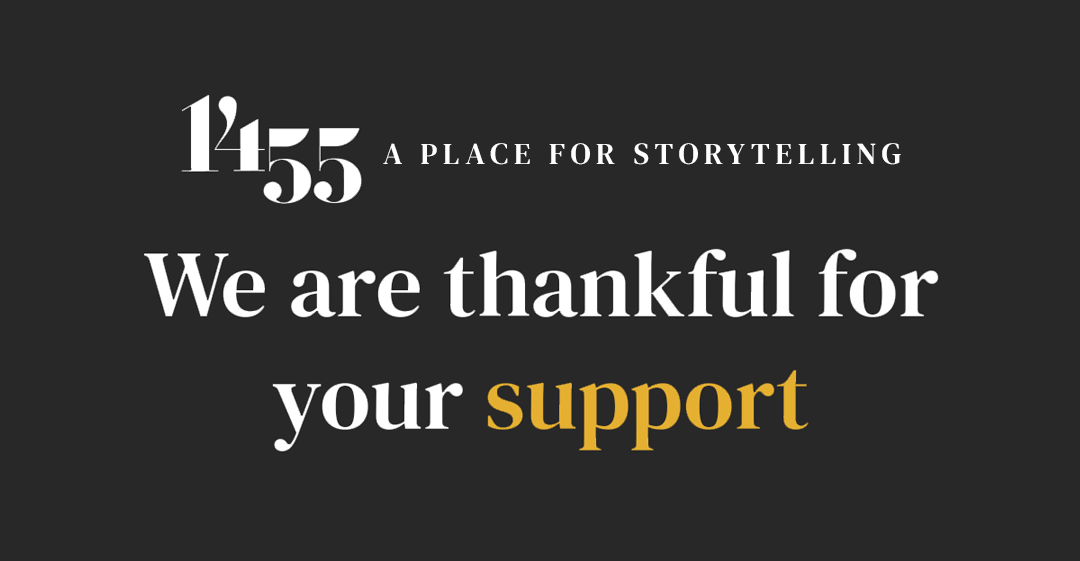
Your gift of any amount will have a significant impact on our ability to reach a diverse and expansive community and help us to continue to build a global community of writers, artists, creatives, entrepreneurs, thinkers, and literary fans. Make a contribution at 1455litars.org/support.


